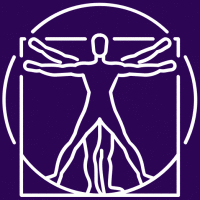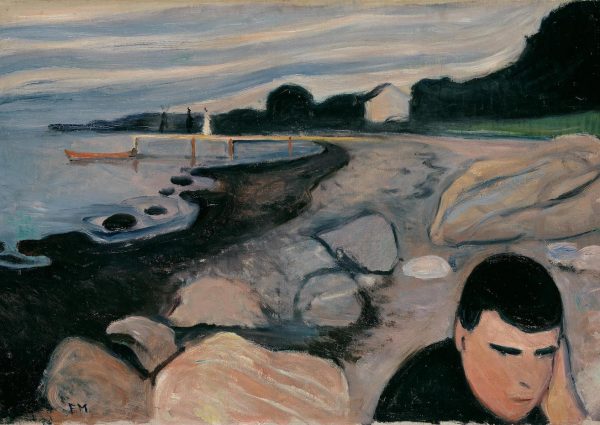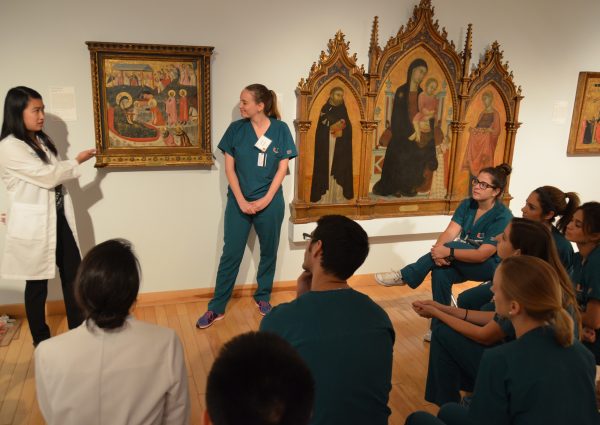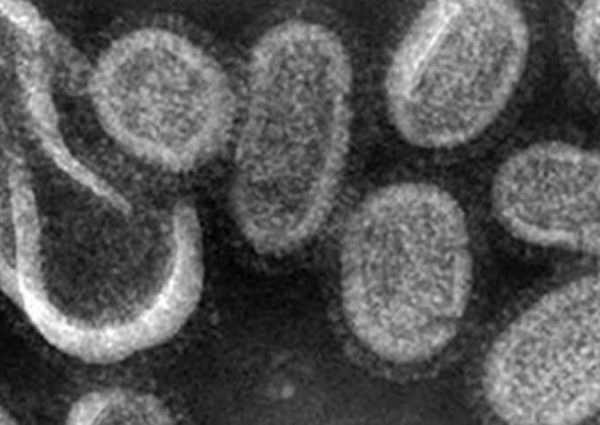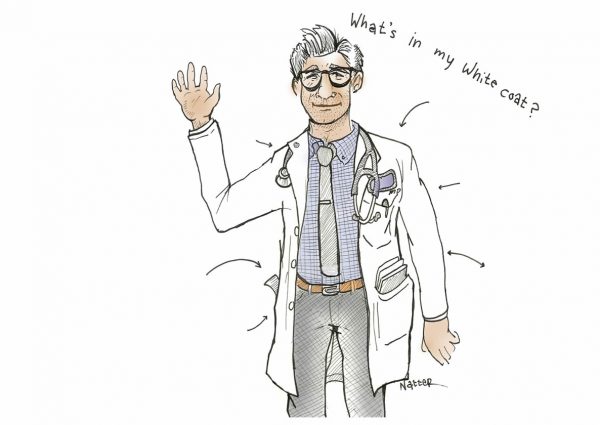INSTITUTION: University of Colorado Health Sciences Center
INSTRUCTORS:
Richard Martinez, M.H, M.D.
Program in Health Care Ethics, Humanities, and Law
Department of Psychiatry
email: richard.martinez@uchsc.edu
Richard Martinez, MD, MH, is a psychiatrist on the faculty of the Department of Psychiatry and in the Program in Health Care Ethics, Humanities & Law at CU Medical School. In addition to his medical training, he completed a Master of Humanities program at University of Colorado, Denver, a fellowship in medical ethics at Harvard Medical School, and a Fellowship at Harvard University’s Center in Ethics and the Professions. He directs the curriculum in ethics and humanities at CU School of Medicine, and has taught courses in literature, ethics, and medicine for many years to both graduate and undergraduate students.
Julie Swaney, M. Div., Chaplain
University Hospital
University of Colorado Health Sciences Center
email: jswaney@purple.UHColorado.Edu
Julie Swaney, M. Div., is the Chaplain at University Hospital and University of Colorado Health Sciences Center. Reverend Swaney graduated from Duke University, and completed her Masters of Divinity at Yale University. She is the director of the pastoral care internship program at University Hospital. She is on the faculty of the Depts. of Medicine and Psychiatry, and is an active teacher in the Program in Health Care Ethics, Humanities and Law.
ENROLLMENT: 4th year medical students, pastoral graduate students; elective
SEMESTER: Winter 2000
3 times weekly (2-3 hours per session)
I. COURSE DESCRIPTION
All illness involves both objective and subjective elements. Traditional medical education often focuses on the objective elements of illness that we call disease. The illness, which is the experience of being sick, is often poorly appreciated. The voice and the experience of the patient is often inadvertently made silent at worse, and diminished at best, in modern medical practice. This course is a four-week elective bringing together senior medical students and pastoral graduate students to examine the nature of illness from the patient’s perspective. What is it like to have a chronic, life-threatening, or terminal illness? How do parents manage with a sick and/or dying child? How do the sick and suffering discover meaning in their experience? What are the spiritual, emotional, and personal changes expressed by those who are sick and suffering? How does a patient’s cultural, ethnic, and religious background influence the experience of illness? How do family relationships and personal belief impact illness? What obstacles internal to the caregiver are barriers to empathy and compassion? Arthur Frank, a writer who experienced and survived cancer, in The Wounded Storyteller, reminds his readers that “the ill person who turns illness into story transforms fate into experience; the disease that sets the body apart from others becomes, in the story, the common bond of suffering that joins bodies in their shared vulnerability.”
II. METHODS:
Each student will be assigned to 2 patients as his or her “mentors” throughout the elective. This involvement will include contact with the patient “mentors” several times per week, both in the medical setting as well as in the patient’s domestic sphere (e.g. home, nursing home). The patient “mentors” will be selected by criteria that bring a broad view of illness to the entire class. Thus, each student will have a primary “mentor” who has a medical illness that is of particular interest to the participant. The second patient “mentor” should present problems that are particularly challenging. For example, if the student is planning a residency in pediatrics and wishes to follow a child with cancer and that child’s family, then we ask that the student select a second patient mentor who will present very different challenges. We hope to create a diverse patient mentor group that will encourage a broad perspective on the illness experience. Each student will keep a journal of their contacts with their mentors for discussion in class. Each student will write several papers about their patient mentors from several points of view to be read and discussed in class.
Through humanities disciplines including literature, philosophy, and theology; film; essays from anthropology and cultural studies; memoirs and pathographies; interviews with hospital patients; group discussion; and additional writing exercises; participants will spend 4 weeks in intensive study, reflection, and discussion about the experience of illness and suffering. Reverend Swaney and Dr. Martinez will meet with the entire class three times weekly for 2-3 hour seminars. These seminars will include discussion of assigned readings, films, and reflection on what is being learned from the deepening and growing relationship with the participant’s patient mentors.
III. OBJECTIVES
Each student will deepen their understanding and empathy for the patient’s experience of illness. The course will investigate “meanings” of illness and suffering as reflected in personal, cultural, and religious values. At the end of the course each student will be able to:
1. Define and discuss concepts of illness, disease, suffering, and pain.
2. Understand and explain how the context of a person’s life including religious, cultural, racial, and ethnic elements influence the experience of illness.
3. Discuss amd demonstrate how understanding, empathy, and compassion for a person’s illness is a practice that requires cognitive and emotive elements in caretakers.
4. Discuss and demonstrate the use of literature and humanities disciplines as a method of cultivating empathy, imaginative identification, and moral reflection.
5. Demonstrate skills in writing in the voice of the patient with illness.
IV. REQUIREMENTS:
Students will be required to attend all seminars and field trips. Assigned readings and active participation in class discussion will be required. Each student will keep a journal of their contacts with their patient “mentors” that documents the reported experience of the patient, as well as reflections and reactions to these encounters. A final writing assignment on the experience with the student’s patient mentor will be required which can be 4-6 pages in length written in the voice of the patient.
V. READING LIST:
Required reading includes:
Arthur Frank, “The Wounded Storyteller”
Victor Frankl, “Man’s Search For Meaning”
Franz Kafka, “Metamorphosis”
Arthur Kleinman, “The Illness Narratives”
David Morris, “Illness and Culture in the Postmodern Age”
Reynolds Price, “A Whole New Life”
Leo Tolstoy, “The Death Of Ivan Ilyich”
Elie Weisel, “Night”
Elective list includes:
Eric Cassel, “The Nature Of Suffering”
Kay Redfield, “Jamison, An Unquiet Mind”
David Morris, “The Culture of Pain”
Kathryn M. Hunter, “Doctors’ Stories”
Sherwin Nuland, “How We Die”
Howard Brody, “Stories of Sickness”
Robert Coles, “The Call of Stories”
Anne Hunsaker Hawkins, “Reconstructing Illness: Studies in Pathography”
Mary Shelley, “Frankenstein”
Oliver Sacks, “Awakenings and A Leg To Stand On”
Peter Brooks, “Psychoanalysis and Storytelling”
Carolyn Jaffee and Carol Ehrlich, “All Kinds Of Love”
Paul Tillich, “The Meaning of Health”
Tom Beauchamp and James Childress, “Principles of Biomedical Ethics”, 4th edition
Barbara Sourkes, “Armfuls of Time”
Anatole Broyard, “Intoxicated By My Illness”
William Styron, “Darkness Visible”
Arthur Frank, “At The Will Of The Body”
Eric Cassel, “Doctoring”
Syllabus-
Week 1: Health and Illness: Pain and Suffering
- Tues., Jan. 4 – 12-2:30PM – Ethics Office
Topic– Introduction to Course. Pastoral life vs. Medicine. What is health, illness, disease, pain, and suffering? Kinds of illness experience. Chronic and acute illness experience. The place of narrative and story in the experience of illness. A Bio-Cultural Perspective.
Readings– Hastings Center Report on “Goals of Medicine.” Eric Cassel, “The Nature of Suffering and the Goals of Medicine.” Ellen Fox, “Predominance of the Curative Model of Medical Care.”
Elective Readings– David Morris, “Illness and Culture in the Postmodern Age”, pp. 1-77. Poetry of Jack Coulehan, Raymond Carver, Rafael Campo, Marilyn Krysl, John Stone and others. WHO definition of health. “The Concepts of Health, Illness, and Disease,” Arthur L. Caplan in “Medical Ethics” by Robert Veatch.
- Thurs., Jan. 6 – 3-5PM – Ethics Office
Topic– Models of the Patient-Professional Relationship: A Bio-Cultural Approach
Readings– Richard Selzer’s “The Surgeon As Priest” from “Mortal Lessons”. Patricia Illingworth, “The Friendship Model of Physician/Patient Relationship and Patient Autonomy.” M-T.B. Dombeck and J.S. Evinger, “Spiritual Care: The Partnership Covenant.”
Elective Readings– “The Recovery of the Sacred, Parts 1 & 2,” Rachel Naomi Remen, M.D. “The Physician/Patient Relationship,” Howard Brody and “The Virtuous Physician and the Ethics of Medicine.” William May’s “The Physician’s Covenant”, Chapter 4.
- Fri., Jan. 7 – 9:30-11:30AM – Ethics Office
Topic– Illness and Culture
Readings– David Morris, “Illness and Health in the Postmodern Age.” Marjorie Kagawa-Singer, “Diverse Cultural Beliefs and Practices About Death and Dying in the Elderly.” “FICA: Spirtual History,” Christina M. Puchalski, M.D.
Elective Readings– Ruth Macklin, “Ethical Relativism in a Multicultural Soceity.” “Tips for Effective Cross-Cultural Communication.” “Cross-cultural Cases.” Several handouts on religious beliefs, treatment, and cases.
Week 2: Compassion, Empathy, and Illness
- Tues., Jan. 11 – 1-3:30PM – Ethics Office
Topic– Listening to the Patient’s Story: Theory of Narrative.
Readings– Essay “What Is Narrative?” Alasdair MacIntyre “The Virtues, the Unity of a Human Life and the Concept of a Tradition” from “After Virtue”. Arthur Kleinman’s The Illness Narratives, Chapters 1,2,3,15. “Enacting Illness Stories: When, What, and Why,” Arthur W. Frank from “Stories and Their Limits”.
Elective Readings– Excerpts from “On Paul Ricoeur”, Chapters 10,11. Arthur Frank “The Wounded Storyteller”, Chapters 1,2,3. Essay by Suzanne Poirier and Daniel Brauner, “Ethics and the Daily Language of Medical Discourse.”
- Wed., Jan. 12 – 3-5:30PM – Ethics Office
Topic– The Experience of Alienation.
Readings– Kafka’s “Metamorphosis.” “Sociocultural and Religious Meanings of Pain,” David Morris.
Elective Readings– Essay by Howard Brody in “Stories of Sickness”, Chapter 7.
Film– 5:30-8:30PM at CPH auditorium “The Elephant Man”
- Thurs., Jan. 13 – 11-1:00PM – Ethics Office
Topic– The Nature of Compassion and Barriers to Compassion
Readings– L. Blum, “Compassion.” A. Chekhov, “Misery.” Richard Selzer’s “Toenails,” “Brute,” and “Fetishes.” Susan Onthank Mates, “Laundry,” from “The Good Doctor.”
Elective Readings– Kleinman’s “The Illness Narratives”, Chapters 10, 14 and 16. “Death and Desire,” Abraham Verghese.
Week 3: Death and Dying: Experience at End of Life
- Tues., Jan. 18 – 12-2:30PM – Ethics Office
Topic– Families and Suffering
Readings– Tolstoy’s “The Death of Ivan Ilyich”. “Intimate Strangers: The Role of the Hospital Chaplain in Situations of Sudden Traumatic Loss,” Robert Dykstra.
Elective Readings– “People Like That Are The Only People Here,” Lorrie Moore. “Mary’s Son and Martha’s Daughter: Children and their Families in the Health Care Crisis,” Diane Komp, MD. “Understanding Family Factors That Shape The Impact of Chronic Illness,” Jane Jacobs. “Five Themes for Caring: Spiritual Care Giving Guide.”
- Wed., Jan. 19 – 3-5:30PM – Ethics Office
Topic– Physician Assisted Suicide: Mercy or Killing?
Readings– E. Pellegrino “Doctors Must Not Kill.” T. Quill’s “A Case Of Individualized Decision Making,” Andrew Solomon’s “A Death Of One’s Own.” Lauris Kaldjian, “A Theological Response to Physician-Assisted Suicide.”
- Thurs., Jan. 20 – 11-1:00PM – Ethics Office
Topic– The Opportunity at End of Life
Readings– Reynolds Price, “A Whole New Life.” “Partnership for Good Dying,” D.T. Fahnestock.
Film– “On The Edge Of Being”
Week 4: Adaptation, Coping, Despair, and Transcendence
- Tues., Jan. 25 – 12-2:30PM – Ethics Office
Topic– The Telling of Illness Stories, Psychological Suffering, and Themes of Adaptation
Readings– Elie Wiesel’s “Night.” Arthur Frank’s “The Wounded Storyteller,” Chapters 1-7. “An Ontology of Anxiety,” from Paul Tillich’s “The Courage To Be.”
Elective Reading– Rita Charon, “To Render the Lives of Patients.”
Exercise– Paper due on writing in the patient’s voice.
- Wed., Jan. 26 – 3-5:30PM – Ethics Office
Topic– The Spiritual Aspect of Suffering
Readings– Victor Frankl’s “Man’s Search For Meaning.” Elie Wiesel’s “Night.”
- Thurs., Jan. 27 – 10-12PM – Ethics Office
Topic– Professionals and Boundaries
Readings– “An Appeal,” from “Ethics For The New Millenium,” The Dalai Lama. We will read student papers.
